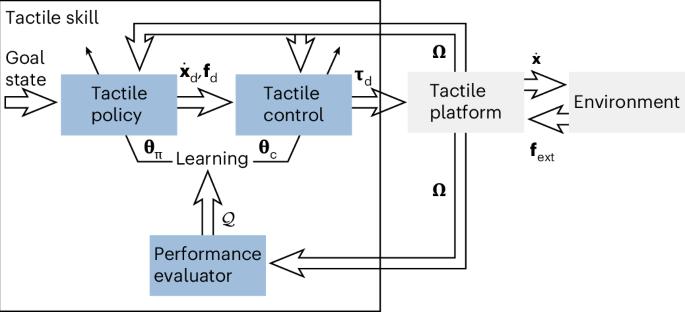A process-centric manipulation taxonomy for the organization, classification and synthesis of tactile robot skills
IF 23.9
1区 计算机科学
Q1 COMPUTER SCIENCE, ARTIFICIAL INTELLIGENCE
引用次数: 0
Abstract
Despite decades of research in robotic manipulation, only a few autonomous manipulation skills are currently used. Traditional and machine-learning-based end-to-end solutions have shown substantial progress but still struggle to generate reliable manipulation skills for difficult processes like insertion or bending material. To facilitate the deployment and learning of tactile robot manipulation skills, we introduce here a taxonomy based on formal process specifications provided by experts, which assigns a suitable skill to a given process. We validated the inherent scalability of the taxonomy on 28 different skills from industrial application domains. The experimental results had success rates close to 100%, even under goal pose disturbances, with high performance attained by the skill models in terms of execution times and contact moments in partially known environments. The basic elements of the models are reusable and facilitate skill-learning to optimize control performance. Like established curricula for human trainees, this framework could provide a comprehensive platform that enables robots to acquire relevant manipulation skills and act as a catalyst to propel automation beyond its current capabilities. Despite decades of research, autonomous robotic manipulation skills remain limited, especially for complex tasks such as insertion or bending of materials. Johannsmeier et al. introduce a taxonomy of manipulation skills that synthesizes tactile behaviours from process specifications, achieving high robustness and performance with minimal learning time.


一个以过程为中心的操作分类法,用于触觉机器人技能的组织、分类和综合
尽管对机器人操作进行了数十年的研究,但目前只有少数自主操作技能得到应用。传统的和基于机器学习的端到端解决方案已经取得了实质性的进展,但仍然难以为插入或弯曲材料等困难过程产生可靠的操作技能。为了促进触觉机器人操作技能的部署和学习,我们在这里引入了一种基于专家提供的正式过程规范的分类法,该分类法为给定的过程分配了合适的技能。我们在来自工业应用领域的28种不同技能上验证了分类法的固有可伸缩性。实验结果表明,即使在目标姿态干扰下,成功率也接近100%,在部分已知的环境中,技能模型在执行时间和接触时刻方面取得了很高的表现。模型的基本元素是可重用的,并且便于技能学习以优化控制性能。就像为人类学员建立的课程一样,这个框架可以提供一个全面的平台,使机器人能够获得相关的操作技能,并作为催化剂,推动自动化超越其目前的能力。
本文章由计算机程序翻译,如有差异,请以英文原文为准。
求助全文
约1分钟内获得全文
求助全文
来源期刊

Nature Machine Intelligence
Multiple-
CiteScore
36.90
自引率
2.10%
发文量
127
期刊介绍:
Nature Machine Intelligence is a distinguished publication that presents original research and reviews on various topics in machine learning, robotics, and AI. Our focus extends beyond these fields, exploring their profound impact on other scientific disciplines, as well as societal and industrial aspects. We recognize limitless possibilities wherein machine intelligence can augment human capabilities and knowledge in domains like scientific exploration, healthcare, medical diagnostics, and the creation of safe and sustainable cities, transportation, and agriculture. Simultaneously, we acknowledge the emergence of ethical, social, and legal concerns due to the rapid pace of advancements.
To foster interdisciplinary discussions on these far-reaching implications, Nature Machine Intelligence serves as a platform for dialogue facilitated through Comments, News Features, News & Views articles, and Correspondence. Our goal is to encourage a comprehensive examination of these subjects.
Similar to all Nature-branded journals, Nature Machine Intelligence operates under the guidance of a team of skilled editors. We adhere to a fair and rigorous peer-review process, ensuring high standards of copy-editing and production, swift publication, and editorial independence.
 求助内容:
求助内容: 应助结果提醒方式:
应助结果提醒方式:


